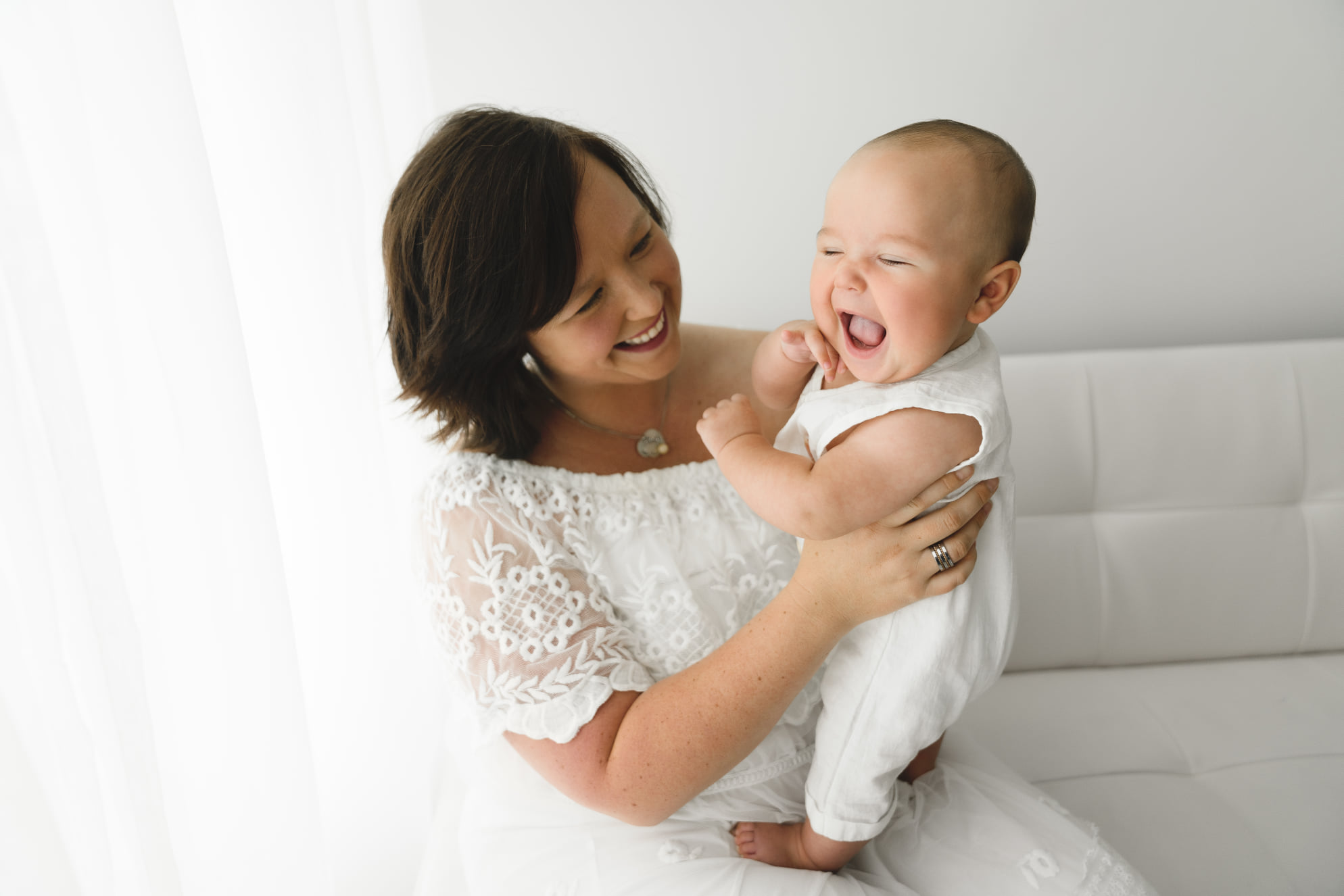Mental Health Matters: Self-Care Tips for Moms
May is mental health awareness month and I want to do just that. As a mom, your mental health is just as important as your physical health. But it can often be overlooked or put on the back burner as you focus on the needs of your family. Whether you’re a new mom or you’ve been at this for a while, it’s essential that you take time to prioritize your own mental health and practice self-care. In this blog post, we’ll explore some practical tips for how you can take care of your mental health and stay emotionally healthy.
Prioritize your mental health
Becoming a mom is one of the most fulfilling experiences in life, but it’s also one of the most challenging. You have to juggle a lot of responsibilities, from caring for your newborn to managing household tasks. It’s easy to get so caught up in taking care of your family that you forget to take care of yourself. But here’s the truth – your mental health matters just as much as your physical health.
As a mom, it’s crucial to prioritize your health, including your mental health. You need to set a healthy example that you’re willing to take care of yourself, too. If you’re not in a good mental state, you’ll struggle to be present for your family and may even experience burnout.
Tips for moms
So, how can you prioritize your mental health as a mom? Here are some tips:
- Take time for yourself
It’s important to carve out some alone time to recharge. It can be as simple as taking a long bath, reading a book, or going for a walk. This “me time” will help you decompress, relax, and reset. - Connect with friends
Motherhood can be isolating, especially if you’re a new mom. Try to stay connected with friends, whether it’s through a weekly playdate or just a quick text. Having a support system can make a world of difference. - Practice self-care
Self-care looks different for everyone, but it’s essential to incorporate it into your routine. This can mean getting enough sleep, eating well, exercising, or meditating. Whatever it is, make sure it’s something that helps you feel good. - Be mindful of your feelings
It’s normal to experience a range of emotions as a mom, from joy to frustration. But if you notice that you’re feeling sad, anxious, or overwhelmed more often than not, it’s worth paying attention to. It may be a sign that you need additional support.
By prioritizing your mental health, you’re setting yourself up to be the best mom you can be. Remember, taking care of yourself is not selfish – it’s necessary.

Post-partum anxiety and depression
Bringing a new life into the world is a wonderful and transformative experience. However, it’s also important to acknowledge that becoming a new mom can be overwhelming and even stressful. It’s common for moms to experience feelings of anxiety and depression after giving birth, known as postpartum anxiety and depression.
Postpartum anxiety can be characterized by constant worry, fear, and even panic attacks. These feelings may make it difficult for new moms to bond with their babies, or even leave their home. Meanwhile, postpartum depression can leave new moms feeling exhausted, sad, and emotionally numb. Both conditions can make it difficult for new moms to care for themselves, let alone their babies.
If you’re a new mom who’s experiencing symptoms of anxiety or depression, don’t be afraid to seek professional help. You can start by reaching out to your healthcare provider or a mental health professional who can offer treatment options and resources.
It’s also important for new moms to know that these feelings are normal and that they’re not alone. It’s estimated that 1 in 7 new moms experience postpartum depression, while up to 10% experience postpartum anxiety. Seeking help can provide new moms with the support and resources they need to feel like themselves again.
As a new mom, self-care is essential for both your physical and mental health. Practice mindfulness, make time for activities that bring you joy, and take advantage of support systems. This can include reaching out to friends, family, and even community groups that offer support for new moms.
Remember, it’s okay to prioritize your mental health as a new mom. In fact, doing so is essential for both your well-being and the well-being of your baby. Don’t hesitate to reach out for help, and always remember to practice self-care and self-compassion as you navigate this new and exciting journey.
Getting overwhelmed as a mom
Being a mom is one of the most rewarding experiences a woman can have, but it’s also one of the most challenging. With so many things to take care of, it’s easy to get overwhelmed.
I have anxiety and had been going undiagnosed for many years. Once I got diagnosed and got help it got significantly better. As moms, we have so many responsibilities and things that we need to manage. It can feel like we’re constantly on the go and we never get a moment to just breathe. And when you add anxiety to the mix, it can be even more challenging. I get overwhelmed when things pile up and with multiple kids sometimes there’s a lot going on, the house is a mess and I just can’t think. I say this so you, mama, know that you’re not alone. If you get overwhelmed and have a hard time balancing life as a mom try making a list and crossing things off one thing at a time
Remember, getting overwhelmed is normal and it happens to everyone. Don’t be too hard on yourself and take the steps necessary to take care of your mental health. You got this, mama!

Getting touched out as a mom
As a mom, you are always on call. You’re the one who is always there for your children. From nursing and changing diapers to wiping noses and cuddling, there are countless times throughout the day when your little ones need you to be physically present. However, all this physical contact can sometimes leave you feeling touched out, overwhelmed, and emotionally drained.
The feeling of getting touched out is very real and can be tough to deal with. It’s not uncommon to feel like you just can’t take it anymore and crave some personal space. It’s essential to recognize that this is entirely normal and that taking time for yourself is crucial.
So, what can you do when you feel like you’ve reached your limit? Here are some self-care tips for when you’re feeling touched out as a mom:
- Take a break
It’s okay to step away from your child for a little bit. Find someone you trust to watch your child, or put them down for a nap and take some time for yourself. Use this time to relax, take a nap, or do something you enjoy. Try to find a space in your house that you feel comfortable in and can relax in when you’re feeling overwhelmed. - Set boundaries
You have the right to set limits on physical contact. Be open with your partner and even kids and let them know when you’re feeling overwhelmed. By creating boundaries for yourself, you simultaneously teach your kids that it’s okay for them to set healthy boundaries for themselves too.
Breaking the stigma
One of the biggest hurdles to seeking help for mental health issues is the stigma that surrounds it. For moms, this stigma can be especially powerful. Society often places immense pressure on mothers to be perfect, to have it all together, and to always put their children first. Unfortunately, this can lead many moms to believe that seeking help for mental health struggles means that they are somehow failing as a parent.
However, it is important to remember that mental health issues are common and completely normal. It is estimated that one in five new moms experiences post-partum anxiety or depression. Additionally, the stress of caring for a new baby, especially in the midst of a pandemic, can exacerbate pre-existing mental health conditions. Seeking help for these struggles is a sign of strength, not weakness.
To break the stigma surrounding mental health for moms, it is important to talk openly and honestly about it. Share your experiences with trusted friends and family members, and don’t be afraid to ask for support. Encourage other moms to do the same and create a safe space for open conversation. When we normalize mental health struggles, we can create a world where seeking help is seen as an act of courage, not shame.
If you are struggling with your mental health, know that there are many resources available to you. Talk to your doctor or a mental health professional, or reach out to support groups and hotlines for assistance. Remember that you are not alone, and that seeking help is an important step in taking care of yourself and your family.





























































